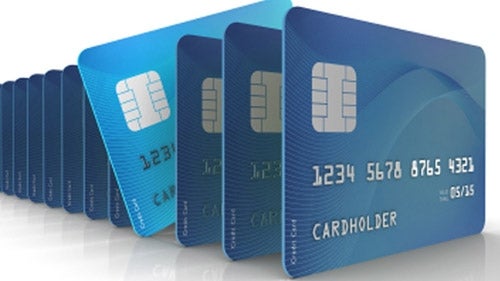
These days, many employers use direct deposit to issue paychecks. This eliminates the need to print and distribute checks. It also eliminates the possibility of physical checks being lost or stolen. However, paying via direct deposit generally requires that employees have bank accounts. Some employees do not have bank accounts, and in certain industries, the percentage of “unbanked” employees is fairly high. Additionally, changes in the banking industry are resulting in higher fees, so more and more employees may choose to forgo a checking account altogether.
Since they cannot take advantage of direct deposit, employers who have employees without bank accounts have two options for distributing pay:
2. Payroll debit cards
Payroll Checks
As noted above, paying employees by check poses numerous challenges, including security considerations as well as the hassle and expense of producing and distributing checks each pay period. For some companies, especially those with small workforces, paying by check may seem like the best option.
But in addition to the inconveniences associated with the practice, more restrictive banking practices are making it tougher for employees without bank accounts to cash their checks. It was once fairly common for banks to cash checks drawn on accounts other than their own. Now, some banks have cut out this practice altogether, and other banks and check-cashing facilities now routinely charge employees a hefty fee to perform the service.
Payroll Debit Cards
A payroll debit card is a good solution to this dilemma. Payroll debit cards, generally obtained through a payroll service, offer a convenient way to pay employees who do not have bank accounts by instead using a branded (e.g., Visa, MasterCard, etc.) pay card. There are a number of benefits for employers who choose this option:
- Reduced exposure to fraud in the form of stolen or counterfeit checks;
- Elimination of the hassles related to lost checks;
- Reduced paper consumption and elimination of expenses associated with printing and distributing checks;
- No concerns about employees qualifying for direct deposit since all employees qualify for debit pay cards.
Employees without bank accounts who are paid via a payroll debit card enjoy many benefits as well. Most retailers accept debit cards for payment these days, and employees can use their cards to make cash withdrawals via the “cash back” service at point of sale locations, such as grocery store check outs. Here are some of the other benefits employees enjoy:
- There are no fees for employees who use payroll debit cards;
- Employees can sign up to receive low balance alerts via text message;
- Employees can use their payroll debit cards for online bill paying.
Finding the Right Alternative
Employers who have “unbanked” employees must choose whether to pay employees via check or with a payroll debit card. Depending on your circumstances, a payroll debit card solution might be ideal for your business.
You can contact a payroll service for more information on payroll debit cards. Many payroll services offer added benefits, such as an employee welcome packet to outline ways to take full advantage of the new service. If you’re considering this option, take a look at the service and make sure it offers the maximum amount of employee and employer value. It pays to choose your service carefully.
30012 Views












